
JERUSALEM/TEHERAN/ANKARA/CAIRO - US President Donald Trump vetoed a recent Israeli plan to kill Iranian Supreme Leader Ali Khamenei, according to multiple media reports on Sunday.
CBS News, citing a US official, reported that Israel had the opportunity to kill Khamenei and Trump told Israeli Prime Minister Benjamin Netanyahu that it wasn't a good idea.
But when asked about the killing plot in an interview on Sunday with Fox News, Netanyahu said: "There are so many false reports of conversations that never happened, and I'm not going to get into that."
According to Reuters, top US officials have been in constant communication with Israeli officials in the days since Israel launched a massive attack on Iran on Friday.
Trump said on Sunday that while the United States is not currently involved in Israel's military strikes against Iran, future involvement remains a possibility.
"We're not involved in it. It's possible we could get involved. But we are not at this moment involved," the president told ABC News in an interview.
In the wake of the Israeli strikes against Iran, Trump repeatedly urged Iran to make a deal. In an interview with ABC News, the president said he gave Iran a "60-day ultimatum" to "make a deal," but he is not setting a new deadline.
ALSO READ: Dialogue urged as Israel, Iran trade strikes
Israel carried out its heaviest aerial assault on Iran on Friday, striking nuclear facilities in Teheran and other locations across the country. The attack killed dozens of scientists, senior security officials, and civilians in Iran, and triggered retaliatory missile and drone attacks that killed at least 14 people in Israel.
Later on Sunday, before departing the White House for the G7 summit in Canada, Trump again said that he sees a "good chance" for a deal on the nuclear issue amid continued Israel-Iran conflict.
The sixth round of the US-Iran indirect talks over Iran's nuclear program, set for Sunday in the Omani capital of Muscat, was called off after Israel launched strikes against Iran.
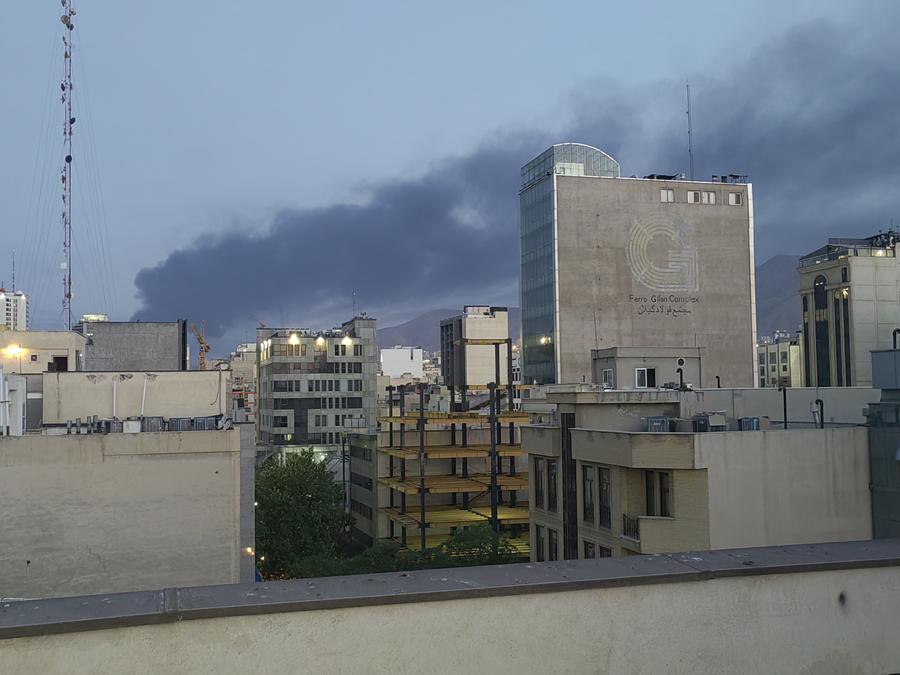
Airstrikes on Iranian missile sites
The Israeli air force unleashed a new wave of airstrikes in Iran on Sunday night, targeting surface-to-surface missile sites in the west of the country, the Israeli military announced in a statement.
The strikes aimed to destroy "dozens" of missile targets, according to the statement.
On Sunday, Israeli Defense Minister Israel Katz said the airstrikes would continue and would target not only nuclear-related facilities but also missile sites, weapons production facilities, aerial defense systems, and "regime targets in Teheran".
ALSO READ: Chinese foreign minister holds phone talks with Iranian, Israeli counterparts
In a public update, Netanyahu said Israel was "determined to complete the mission of removing the double threat" from Iran.
IRGC's intelligence chief, his deputy killed
Meanwhile, Iran's Islamic Revolution Guards Corps (IRGC) announced that the head of its intelligence organization Mohammad Kazemi, and his deputy Hassan Mohaghegh, were killed in Israeli airstrikes on Teheran.
According to its official news outlet Sepah News, the IRGC also confirmed the death of another senior intelligence official in the same attacks on Sunday.
In Israel's Friday airstrikes on Teheran, eight other senior commanders of its aerospace division were killed, said the IRGC in a statement published on Sepah News.
The IRGC extended condolences over the "martyrdom" of its senior commanders.
It listed the slain commanders as Mahmoud Bagheri, Davoud Sheikhian, Mohammad-Bagher Taherpour, Mansour Safarpour, Masoud Tayyeb, Khosrow Hassani, Javad Jorsara, and Mohammad Aghajafari.
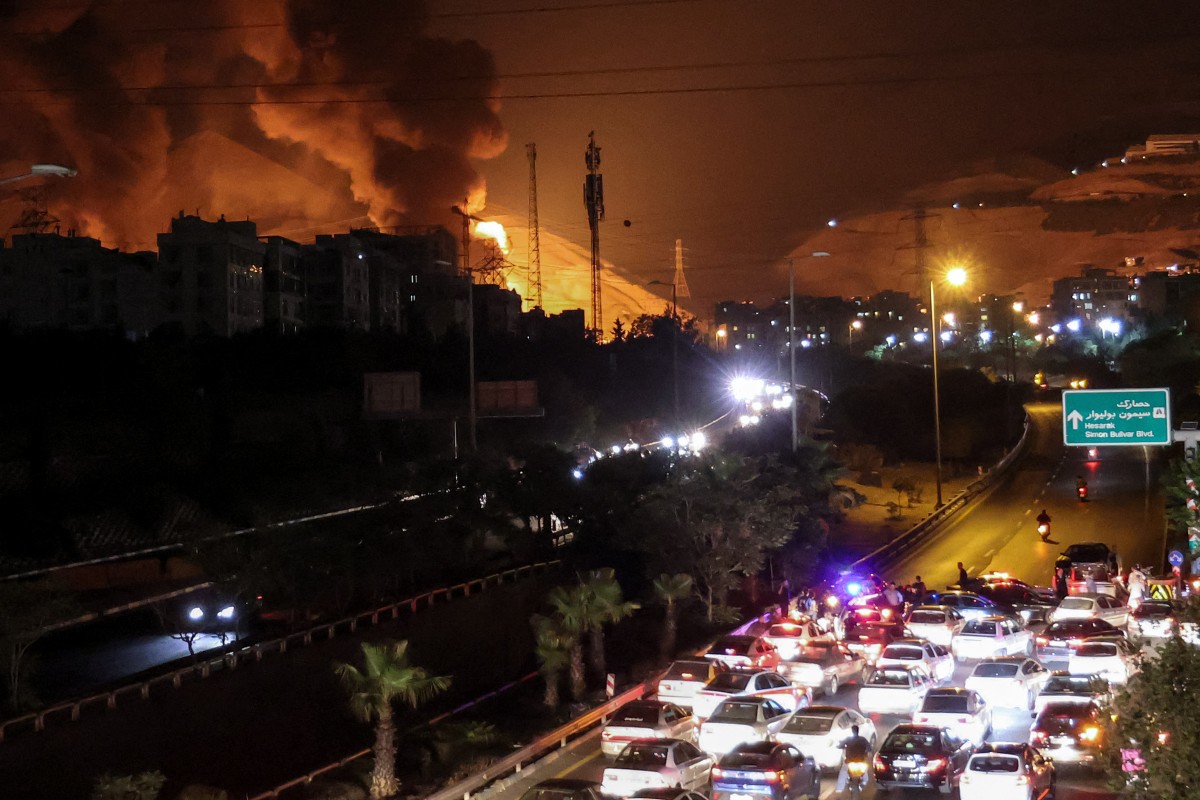
Israeli strikes kill 244
On Sunday, Iran's Health Ministry spokesman Hossein Kermanpour said 244 people have been killed in Israeli airstrikes on Iran over the past 65 hours.
In a post on the social media platform X, Kermanpour noted that women and children were among the dead, and that 1,277 people had been hospitalized.
ALSO READ: Report: Iran launched new wave of attacks on Israel in response to Israeli airstrikes
He added that that over 90 percent of the casualties were civilians.
Explosions near Iran's Mashhad airport
On Sunday evening following Israeli attacks, two explosions were reported near the international airport in Iran's northeastern city of Mashhad, the semi-official Tasnim news agency said.
The explosions, caused by Israeli "projectiles", occurred around 18:30 local time (1500 GMT), according to the report.
Tasnim said the airport's air defense intercepted all the "hostile targets", and no damage was inflicted on the airport's buildings or runway.
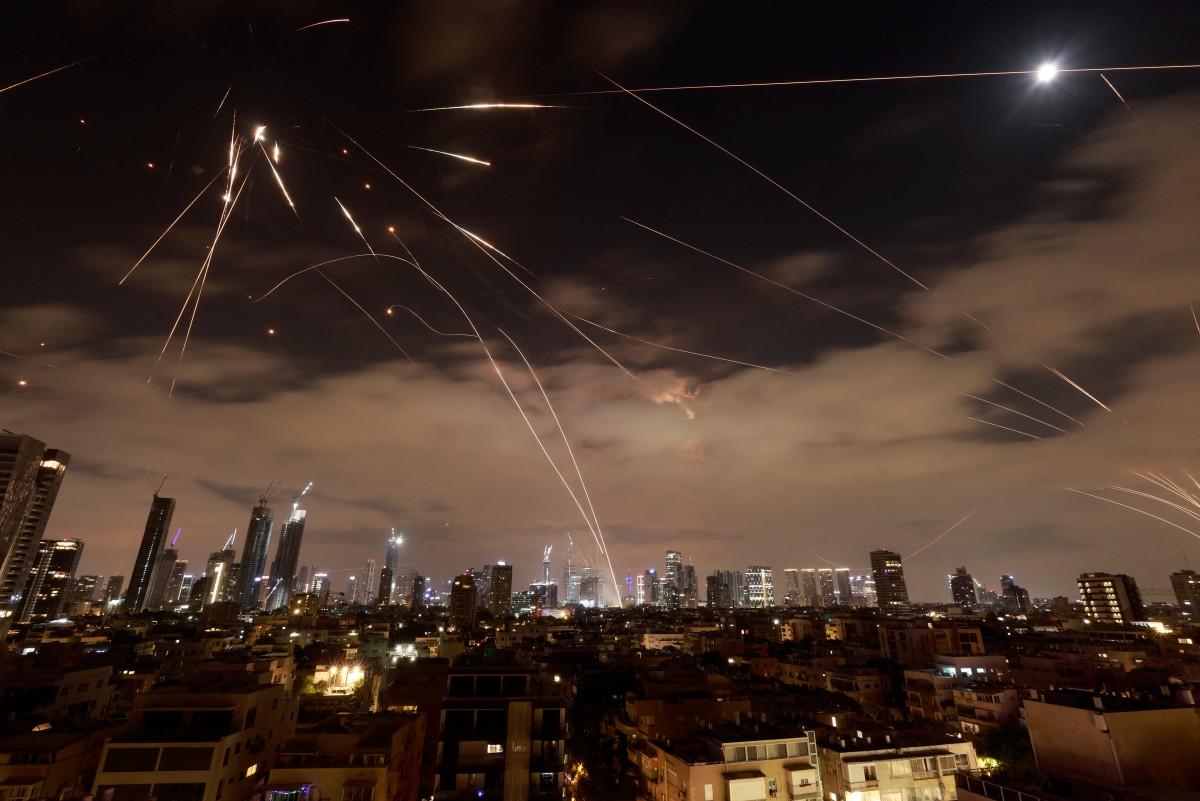
New aerial attack on Israel
Israeli authorities said Iran launched a fresh aerial attack on Israel on Sunday night, injuring at least two people and igniting fires.
The attack came shortly after Israel announced its warplanes had begun a new wave of airstrikes in western Iran, targeting missile launchers.
Air warning sirens were activated in multiple areas across northern, southern, and central Israel, as well as in the occupied Golan Heights, sending residents to shelters, according to the Israeli military. Loud explosions were heard in Tel Aviv and other cities, eyewitnesses said.
Zaki Heler, a spokesman for Israel's Magen David Adom rescue service, said missiles or missile fragments hit three locations, lightly injuring two people. Several others were treated for panic, he said.
ALSO READ: China urges Israel to stop military adventurism in Iran
Israel's Channel 12 reported that Iran launched about 30 missiles, most of which were intercepted by Israel's aerial defense systems. Missile fragments landed in the Haifa area in northern Israel, damaging two buildings and setting cars on fire. Another strike sparked a fire in the south.
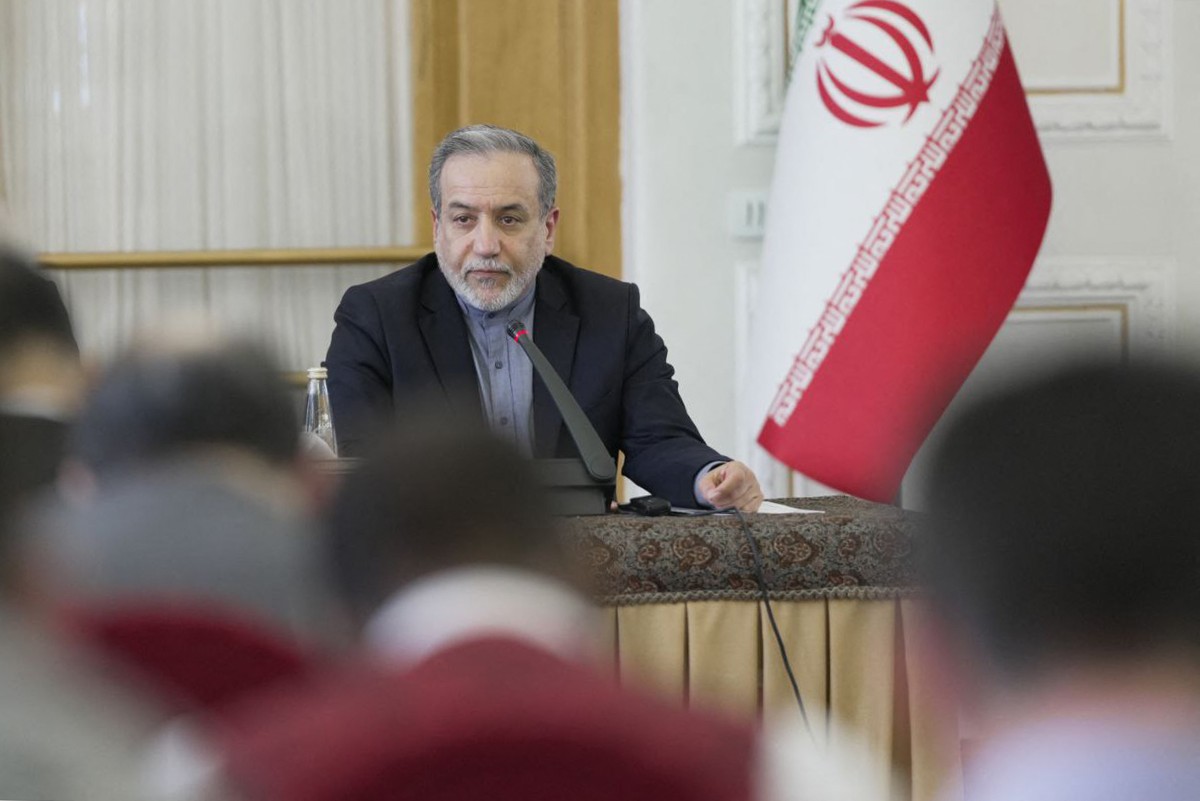
'Iran not seeking to expand conflict'
Meanwhile, Iran's Foreign Minister Seyed Abbas Araghchi said his country in no way seeks to expand the conflict to other countries or the West Asia region, according to the official news agency IRNA.
He made the remarks at a meeting in the capital Teheran with foreign ambassadors and representatives in Iran while elaborating on the country's positions on and reactions to the Israeli attacks over the past two days.
Araghchi said, "We did not start this war and were pursuing diplomacy regarding our nuclear program. This aggression was imposed on us. We are defending ourselves and this defense is completely legitimate."
"If the aggression stops, our reactions will naturally cease," he noted.
Pointing to Israel's Saturday attack on Iran's energy-rich Assaluyeh region in Bushehr province on the shore of the country's southern waters, Araghchi said expanding the conflict to the Gulf region is "a big strategic mistake", with the intention of "widening the scopes of the war to beyond Iran's territory".
Araghchi said Israel's "aggression" could have never taken place without the US support, adding, "We have firm proof indicating that the US troops and bases in the region support the Israeli attacks."
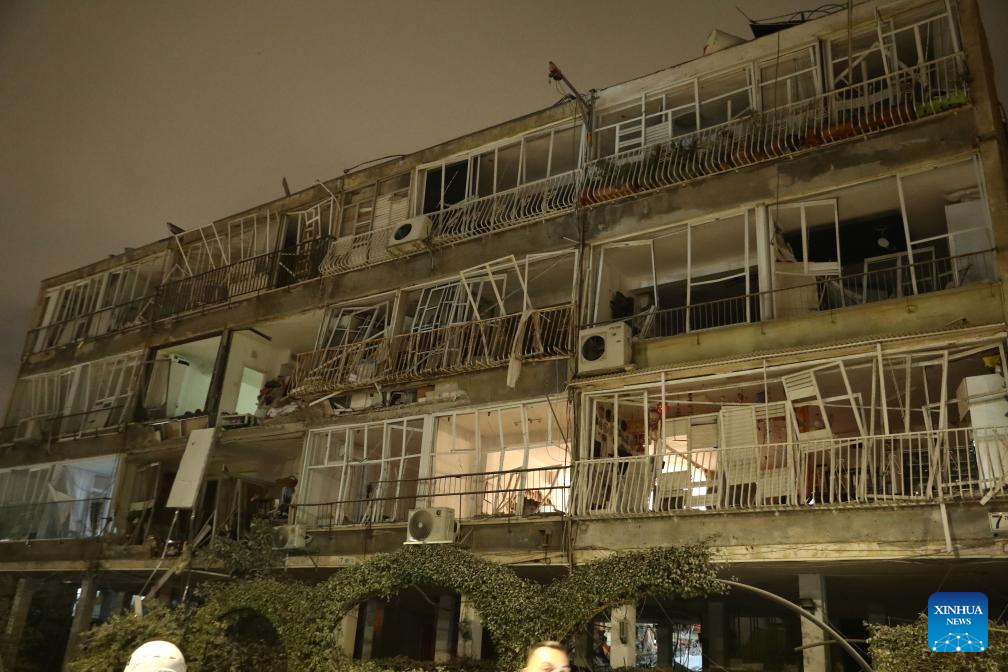
Iranian missile strikes kill 6 in central Israel
Israeli authorities said Iranian aerial attacks killed at least six people and injured 140 others in Israel early on Sunday.
Air sirens and sounds of explosions sent millions running to shelters in dozens of cities across Israel, the military said in a statement.
A residential building in Bat Yam, just south of Tel Aviv, was hit by a missile, causing it to collapse. Another missile struck a residential area in Rehovot, a city in Israel's Central District, causing dozens of injuries.
The police said in a statement that at least two of the fatalities were children, and added that at least seven people were still missing.
The Weizmann Institute of Science in Rehovot sustained damage to several campus buildings as a result of the Iranian missile barrage, but no injuries were reported, the institute said in a statement.
At least 140 people were wounded in the two attacks, Israel's Magen David Adom (MDA) rescue service reported, adding that the vast majority of them sustained light injuries.
Also overnight, the number of fatalities from a missile attack that hit Tamra, an Arab city in the North District of Israel, on Saturday night rose to four, according to the MDA. They were identified as a mother and her two daughters and another relative. Dozens were injured.
On Sunday morning, the Israeli Air Force said it had intercepted seven drones launched toward northern and southern Israel within about an hour.
Overnight, Israeli warplanes continued to strike targets in Iran, including in the capital, Teheran, hitting fuel tankers and suspected nuclear sites, the Israeli military said in a statement. A second wave of airstrikes targeted missile launchers and storage facilities in western Iran.
ALSO READ: Israel reports 41 wounded, heavy damage in Iran's retaliatory attack
Meanwhile, Israel issued on Sunday an evacuation warning to Iranians living near weapons production facilities in Teheran, urging them "not to return until further notice".
"Being near these facilities puts your lives at risk," Israeli military spokesperson Avichay Adraee said in a post in Persian and Arabic on social media platform X.
The warning was issued following an instruction from the Israeli Defense Minister, Israel Katz. A senior Israeli security official told Xinhua that the directive to evacuate residents in Teheran "is part of a pre-approved plan to exert pressure on the regime by displacing the population, in response to the missile fire on Israel's home front".

Turkiye denies claims of Israeli aircraft presence
Separately, the Turkish presidency on Sunday rejected claims circulating on social media that a portion of Israel's civilian aircraft fleet was stationed in Turkiye, calling the reports "completely untrue".
"The allegations in some social media channels that a part of the Israeli civil aircraft fleet was deployed in Turkiye are completely untrue," the Turkish presidency said in a statement.
The Turkish presidency emphasized that all flights and aviation cooperation with Israel were halted after Israel launched its military operations in Gaza.
"Since there is no civil-military aviation activity between Turkiye and Israel, there are no Israeli aircraft in our airports and hangars," it continued.
"So much so that even the use of Turkish airspace by Israeli officials was not allowed, and this situation was reflected in the press from time to time," the statement added.
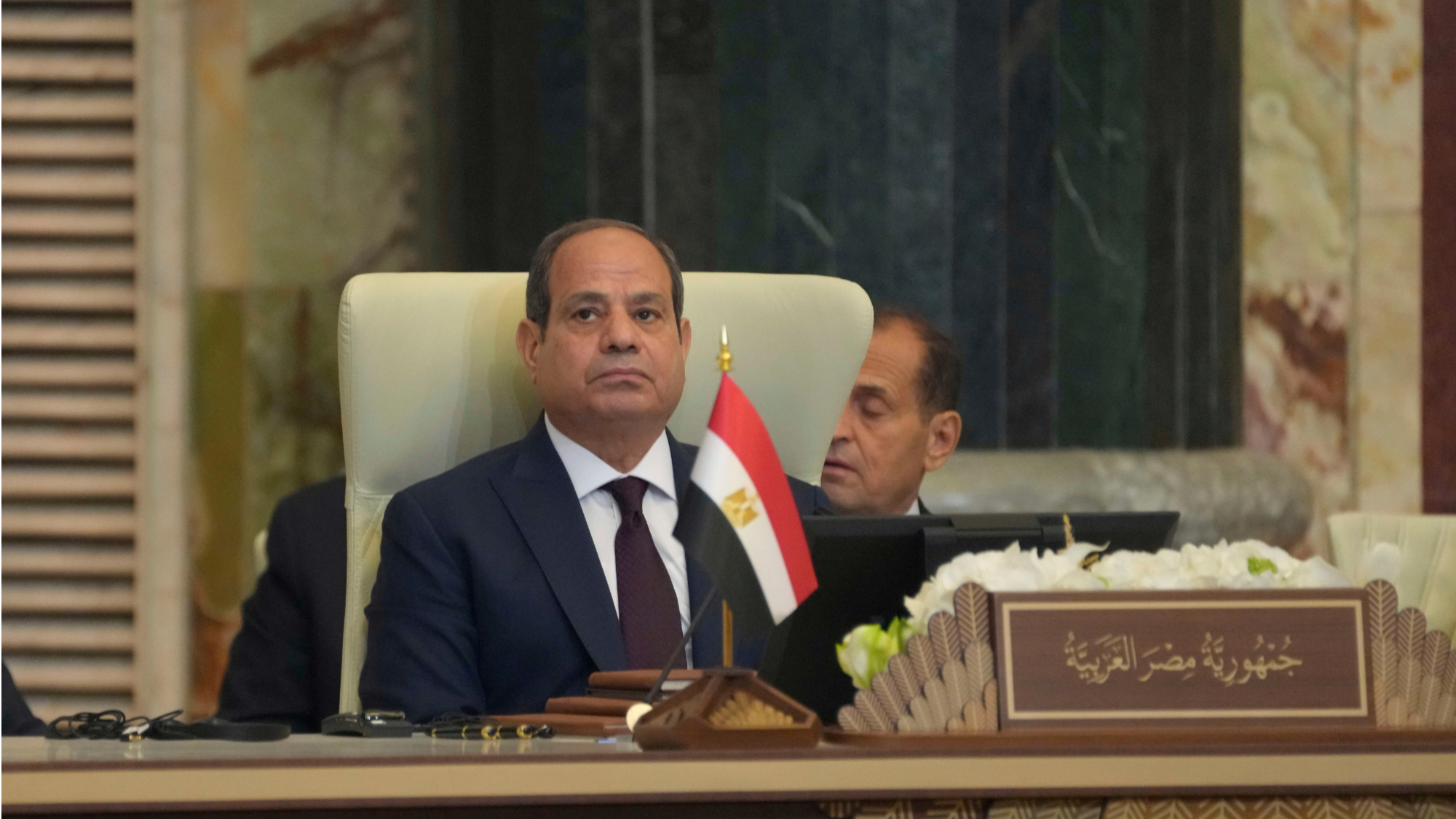
Egyptian president urges end to Israeli strikes
On Sunday, Egyptian President Abdel-Fattah al-Sisi voiced Egypt's rejection of any expansion of the ongoing regional conflict, stressing the urgent need to halt Israeli military operations "on all regional fronts", the Egyptian presidency said in a statement.
The Egyptian president made the remarks during a phone call with his Cypriot counterpart Nikos Christodoulides, in which Sisi warned that continued tension "will inflict grave and formidable harm on all peoples of the region".
The Egyptian leader stressed that peaceful solutions remain "the sole viable means" to ensure security and stability in the region, calling on the international community to play a more active role in compelling all regional parties to act responsibly.
READ MORE: Israeli strikes on Iran widely condemned
Sisi also reiterated the urgent need to resume the US-Iranian nuclear negotiations mediated by Oman, which he described as "the best solution to the current tension".


